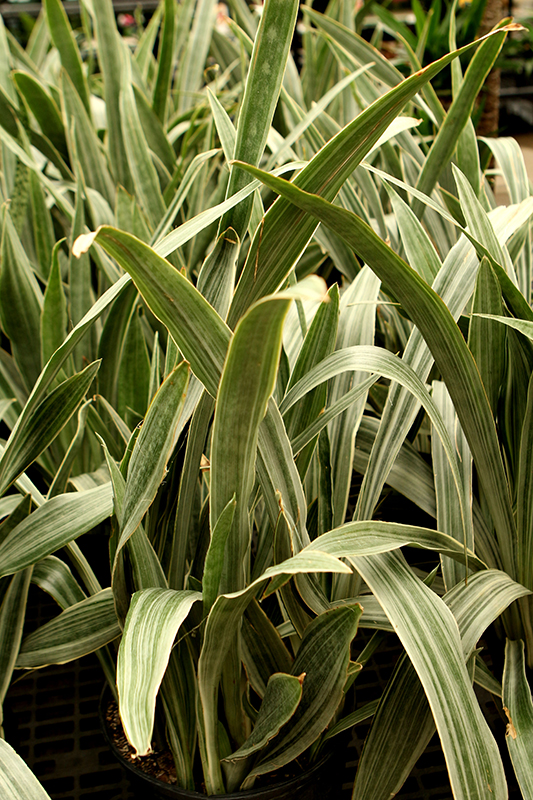Height: 3 feet
Spread: 18 inches
Sunlight:
![]()
![]()
Other Names: Mother-In-Law's Tongue
Description:
This popular plant will form dense stands of vertical leaves, arranged in rosettes; produces grey-green leaves, mottled and striped with dark green and cream; a great choice for low light indoor areas; low maintenance and easy to grow
Features & Attributes
Sayuri Snake Plant features dainty fragrant light green spider-like flowers with white overtones along the stems in mid spring. Its attractive large narrow leaves remain grayish green in color with showy creamy white variegation and tinges of silver throughout the year.
This is an herbaceous evergreen houseplant with an upright spreading habit of growth. This plant should not require much pruning, except when necessary to keep it looking its best.
Planting & Growing
When grown indoors, Sayuri Snake Plant can be expected to grow to be about 3 feet tall at maturity, with a spread of 18 inches. It grows at a slow rate, and under ideal conditions can be expected to live for approximately 10 years. This houseplant performs well in both bright or indirect sunlight and strong artificial light, and can therefore be situated in almost any well-lit room or location. It is very adaptable to both dry and moist soil, and should do just fine under average home conditions. The surface of the soil shouldn't be allowed to dry out completely, and so you should expect to water this plant once and possibly even twice each week. Be aware that your particular watering schedule may vary depending on its location in the room, the pot size, plant size and other conditions; if in doubt, ask one of our experts in the store for advice. It will benefit from a regular feeding with a general-purpose fertilizer with every second or third watering. It is not particular as to soil pH, but grows best in sandy soil. Contact the store for specific recommendations on pre-mixed potting soil for this plant.
There are many factors that will affect the ultimate height, spread and overall performance of a plant when grown indoors; among them, the size of the pot it's growing in, the amount of light it receives, watering frequency, the pruning regimen and repotting schedule. Use the information described here as a guideline only; individual performance can and will vary. Please contact the store to speak with one of our experts if you are interested in further details concerning recommendations on pot size, watering, pruning, repotting, etc.
-- THIS IS A HOUSEPLANT AND IS NOT MEANT TO SURVIVE THE WINTER OUTDOORS IN OUR CLIMATE --
